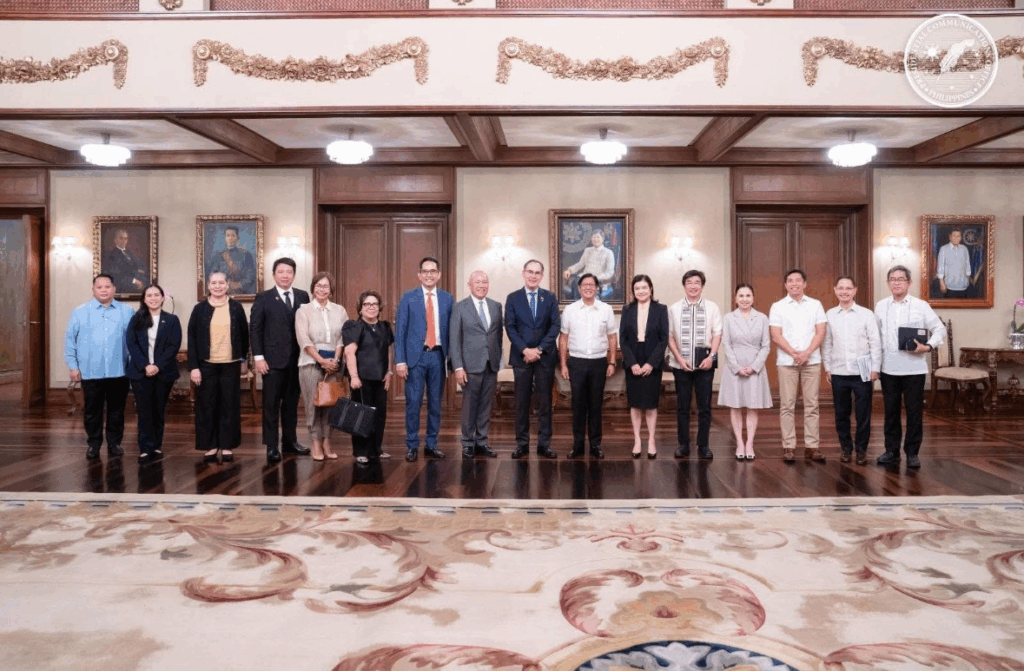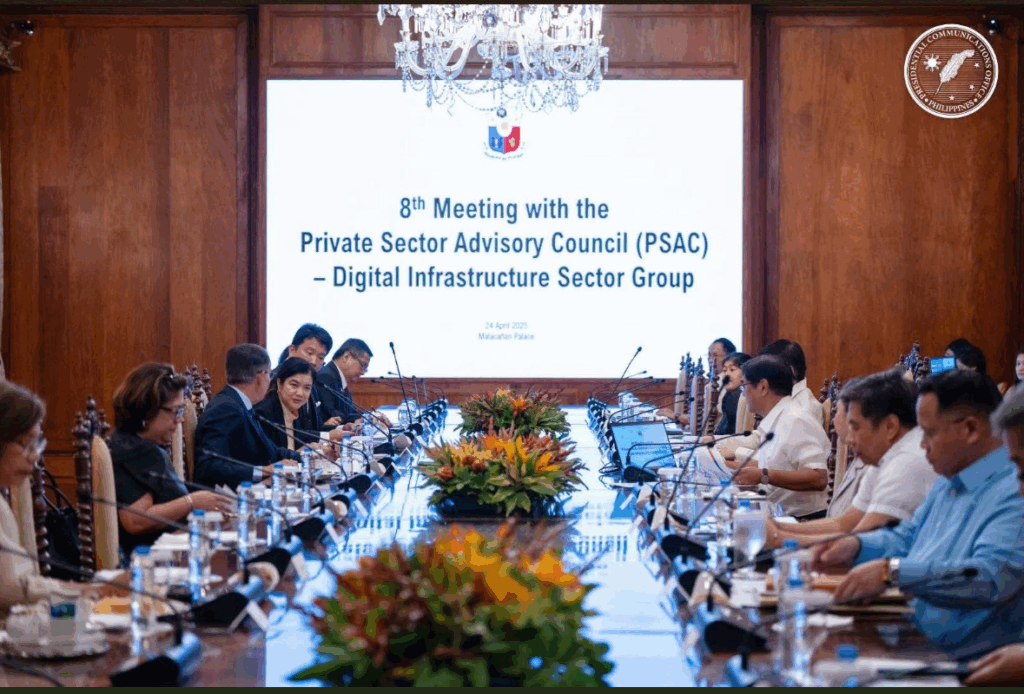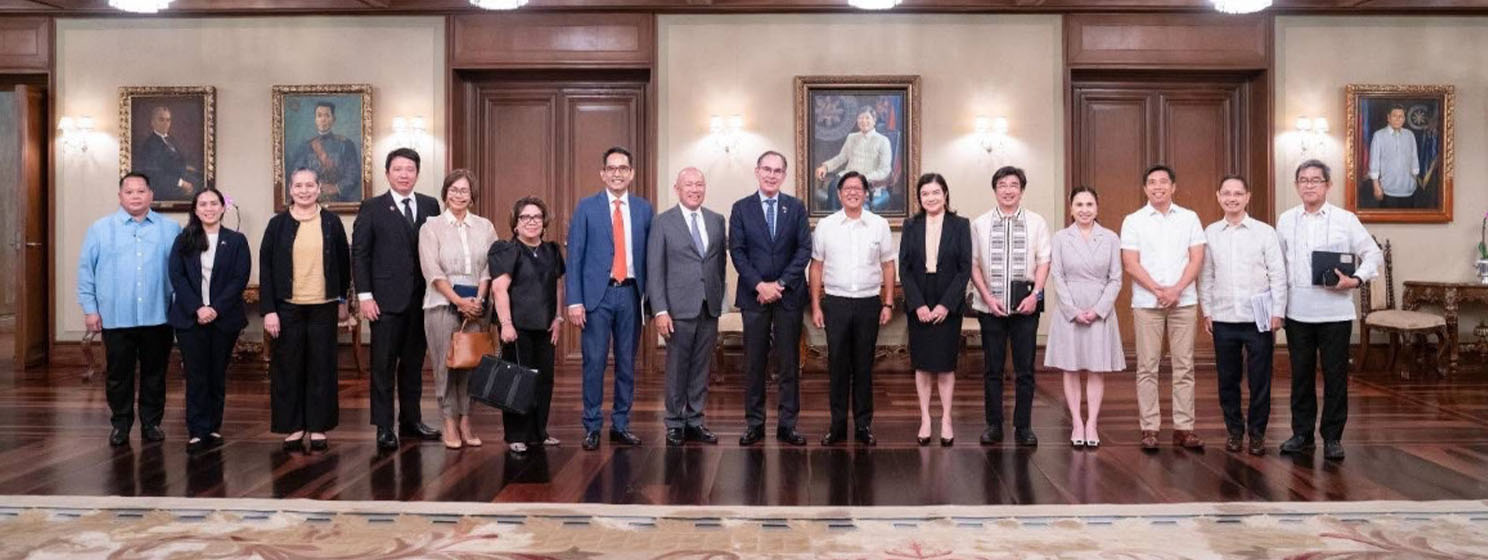|
Getting your Trinity Audio player ready...
|
The Private Sector Advisory Council (PSAC) has called for significant strides in digital transformation, cybersecurity, and workforce development to help the Philippines thrive in an increasingly tech-driven world.

In a recent meeting at Malacañang Palace with President Ferdinand R. Marcos Jr., PSAC’s Digital Infrastructure Sector expressed its appreciation for the President’s commitment to supporting the Business Process Outsourcing (BPO) sector. PSAC highlighted the President’s endorsement of allocating upskilling budgets for up to 340,000 BPO workers annually, including near-hire individuals and college students. This initiative is seen as essential to ensuring the country’s global competitiveness as artificial intelligence (AI) reshapes the workforce.
Myla Villanueva, PSAC Digital Infrastructure Lead and MDI Group Holdings Inc. Chairperson, emphasized that “this budget allocation will help prepare the workforce for the ongoing AI-driven transformation of the global economy.”
The meeting also focused on several key pillars of digital transformation, including the National ID system, digital payments, data governance, and cybersecurity. PSAC urged the government to expedite these initiatives to ensure efficient and accessible public services.
One of the main proposals discussed was the creation of a “Government as a Service” model, which would integrate government agencies through a shared digital system, similar to how apps work together on a smartphone. This system would allow citizens to access services like document applications, permit requests, and fee payments from a single platform.

To make this happen, PSAC recommends that the Department of Information and Communications Technology (DICT) take the lead in testing platforms like eGovDX and eGovPay. They also proposed opening data and systems to private developers, encouraging collaboration to improve digital services.
Cybersecurity was another top priority. With growing cyber threats, PSAC called for the urgent passage of the Cybersecurity Bill in Congress. In the interim, the group plans to collaborate with government agencies to assess vulnerabilities and train a new wave of cybersecurity professionals.
“These initiatives are not just for tech experts—they are for all Filipinos,” said Sabin Aboitiz, PSAC Lead Convenor and Aboitiz Group President and CEO. “They are essential to improving government services, securing our digital lives, and creating jobs for the future.”
PSAC reaffirmed its commitment to working alongside government and industry leaders to shape a future-ready digital economy, with the ambition of making the Philippines a global leader in digital services and innovation.
About Private Sector Advisory Council
The Private Sector Advisory Council (PSAC) was established by President Ferdinand “Bongbong” Marcos Jr. to foster stronger collaboration between the public and private sectors. Comprised of business leaders and experts across six key areas—Agriculture, Infrastructure, Digital Infrastructure, Education & Jobs, Healthcare, and Tourism—PSAC plays a vital role in driving economic growth. The council’s private sector executives are strategically convened by Sabin M. Aboitiz, President and CEO of the Aboitiz Group, ensuring strong leadership and effective engagement.
PSAC supports the government’s commitment to transforming the Philippine economy by advancing infrastructure development, creating jobs, attracting investments, promoting digitalization, enhancing agricultural productivity, supporting MSMEs, and boosting tourism. It also champions education reforms and upskilling initiatives to equip Filipinos with the knowledge and skills needed for a globally competitive workforce. Through these efforts, PSAC aims to build a more equitable, sustainable, and inclusive business environment.
The Council continuously provides policy recommendations to the government, regularly reporting to the President to offer insights, track progress, and refine strategies based on real-time developments.

 03-04-2026
03-04-2026 




